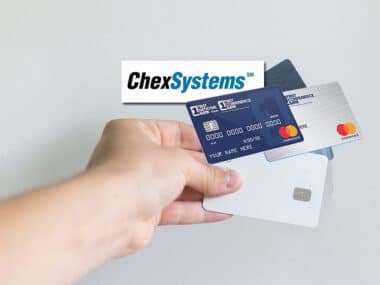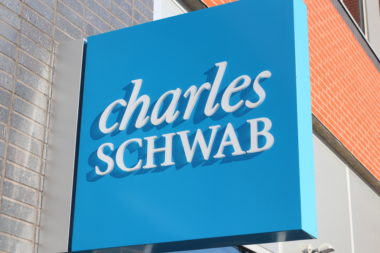A bank account is a necessity in this day and age, but at what age is it appropriate to open one? You most likely started a savings account for your child when they were young, but now you are considering helping your child open a checking account for them to use at will.
Part of this decision is made for you: most banks do not allow minors under the age of 13 or 14 to own checking accounts, and you will be the account’s co-owner until your teen turns 18. Once your child is over the age of 13 or 14, it is up to your discretion as a parent whether to open a checking account. Are they financially responsible? Do they understand what bank accounts are? What about how debit cards work, as opposed to credit cards?
You might decide that your teen does not need a bank account right away because they are not working a part-time job, or you give them an allowance in cash. They will need a checking account sooner or later, though, so use this guide when the time comes to get started.
Table of Contents
Why Open a Bank Account for Teens?
It’s practical to open a teen’s bank account for multiple reasons, such as:
- Responsibility: You hopefully started teaching your child financial responsibility from a young age. Perhaps you gave them a small allowance or played games that simulated wise saving and spending practices. Opening a legitimate checking account is a way to provide your teenager with genuine financial responsibilities and help them practice what they’ve learned.
- Structured education: According to a survey of 1,101 young adults between the ages of 18 and 24, 51.4% of respondents said the high school course that would have benefited them most is “money management.” Financial illiteracy is an epidemic in the United States, especially among teenagers from low-income households that lack educational resources. Opening a checking account for your teen is an opportunity to teach them financial management practices that they do not learn in school.
- Budgeting: Your teenager might believe they know about budgeting in theory, but do they know how to budget in practice? Your child has seen you swipe your credit or debit card countless times, but opening an account of their own can help you better communicate how transactions work and how to adhere to a budget.
- Independence: You cannot monitor your child’s spending forever. Opening a checking account for them while they are in high school allows you to teach them the best financial practices and gradually enable independence. If you wait too long to do so, then your child may have to start from the beginning later in their young adulthood, which is dangerous as they begin to take on more responsibility.
- Saving: You want your child to have a financial foundation. While concerns about money’s safety in banks are understandable, it’s impractical to hold onto high amounts of cash, so your teenager will need a place to store funds.
Consider your purposes for opening a bank account for your child. Do you intend to teach them financial literacy, or do you simply want them to have somewhere to deposit their income if they work an after-school job? You will likely need to be heavily involved before your teenager is ready for financial independence, so be prepared to commit — and as a parent, you should be.
Types of Teen Bank Accounts
Similar to adults, certain types of accounts work for specific financial situations. Here are a few options to consider enrolling your teenager in:
Joint Bank Accounts
Joint bank accounts are for two people to share. They are not just for spouses and significant others who wish to unite their financial resources; parents can start them with minors and keep an eye on how their children spend money. Both you and your teen would have full access to funds, and you can eliminate the need for transferring money between separate accounts.
Custodial Accounts
A custodial account is a kind of bank account that a financially responsible person or entity opens and controls on a beneficiary’s behalf. As such, a parent can open a custodial bank account for a minor. The minor is technically the owner of the account, but the custodian must approve transactions. Custodial accounts have a variety of tax implications and requirements, so consider the pros and cons before using one to save for your child’s college education.
Education Accounts
Besides UGMA and UTMA custodial accounts, you can also open an Education Savings Account, or a 529 Plan to save for your child’s educational needs, including before college or university. Each option has unique tax advantages and requirements, so research your particular state’s regulations before opening one. 529 Plans, for instance, allow higher contribution amounts.
Prepaid Cards
Prepaid cards work similarly to gift cards. You can deposit a limited amount of money into the card’s associated account so that your teen cannot overspend. What separates prepaid cards from traditional gift cards is that they are reloadable and enable users to make ATM withdrawals. Prepaid cards are an excellent place to start teaching your teenager financial literacy and the basics of using an ATM.
Student Accounts
Student accounts are similar to standard checking and savings accounts, but they are intended for young adults attending (or bound for) colleges or universities. Such accounts are advantageous because they provide unique features to assist students with financial needs and often have reduced fees. Help your teenager open a student checking account while they are still a minor and look for the right features, including no monthly fees, higher-paid rates on deposits, and branches near their future campus.
How to Open a Bank Account for Teens
What you need to open a bank account for teens varies between institutions. Some banks, for example, may require you to have a savings account in your own name before you can create one for your child. You will at least need:
- Your teenager’s Social Security number or another government-provided ID number;
- Your own valid forms of ID, such as a driver’s license and government-issued ID number;
- Proof of address;
- The bank’s required initial minimum deposit, such as $25 or $100.
Some banks, like Capital One, allow users to open checking accounts online, while others will require you and your child to visit a physical branch together.
Opening a bank account for your teenager is an important step toward their financial literacy and independence. Use your discretion to determine what level of responsibility your child is ready for and what kind of account will benefit them most.
Image Source: https://depositphotos.com/





